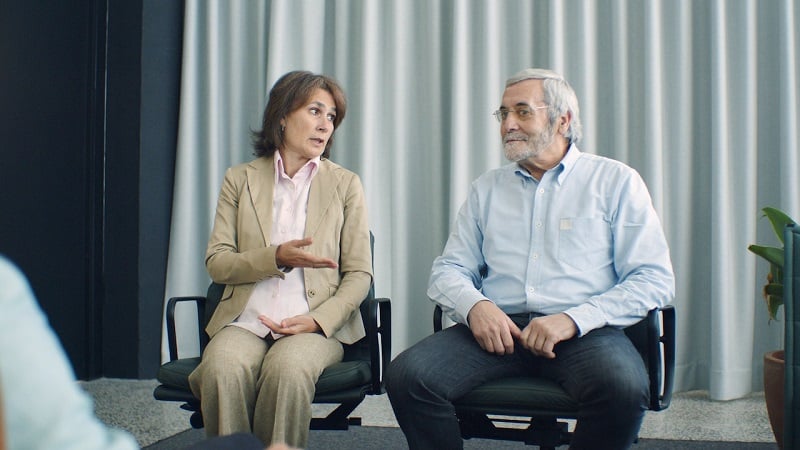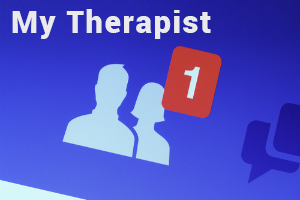Teamwork is essential to a healthy marriage. It’s also a crucial part of therapy or counseling. If you and your partner are seeking help via therapy (which is sometimes also called “marriage counseling”), you’ll see more benefits when you put equal effort into the process.
The following tips for couples counseling will help you get better results if you and your partner are trying to build a healthy relationship.
1. Be Ready to Be Yourself
People often feel pressure to hide their flaws or play the role of the perfect partner. As a result, it’s not uncommon to be afraid when you’re feeling vulnerable. Sharing thoughts and feelings can be scary, but it’s an important part of a healthy relationship. While hiding your true self from your partner might seem to be working in the short term, it will eventually damage your relationship.
Being yourself can help build intimacy and let you forge a stronger connection with your partner. Studies show that people who are true to themselves engage in fewer destructive behaviors and have more positive relationships overall. In addition, authenticity will create opportunities for you and your partner to grow together as a married couple.
Marriage Counseling Online
Strengthen your marriage with the help of an experienced, licensed marriage counselor, from home and at your convenience.
Couples Therapy Online
Strengthen your relationship through couples therapy you can participate in together or apart, at your convenience.
“Come prepared with the role you play in creating hurdles in the relationship. Also, consider your strengths.”
– Talkspace therapist Meaghan Rice, PsyD, LPC
2. Think About Your Relationship and Outside Influences
Human beings are social creatures, and the people around us partially shape our views. While these influences can be positive, they can also be damaging. When you evaluate your relationship, consider if outside opinions have impacted how you see your spouse.
When a friend or family member is overly critical of your partner, it might cause you to see them in a more negative light. It’s okay to seek input or advice from others, but in a healthy relationship, you and your partner should be on the same team.
Talk with your couples counselor or therapist about these influences. If necessary, you may want to set family boundaries or friendship boundaries with some people in your life.
“Think about data points that are applicable within your relationship, but also outside the relationship as well (friends and family interactions).”
– Talkspace therapist Meaghan Rice, PsyD, LPC
3. Define and Share Goals
One of the most important marriage counseling tips is to talk with your partner about what you want to accomplish. Before your first counseling session with a therapist, the two of you should work together to set and define your goals for relationship therapy. These objectives can help you stay focused and track your progress over time.
Discussing goals with your partner is also a way to ensure that you’re on the same page. You can share your personal goals and work together to identify things you want to work toward. Some common goals for marriage therapy might include:
- Improving communication
- Finding healthier ways to achieve conflict resolution
- Identifying the root causes of disputes
“Be ready to share some goals that you hope to accomplish in our work together. Something measurable is great here.”
– Talkspace therapist Meaghan Rice, PsyD, LPC
4. Be Honest
While everyone knows that honesty is the best policy, lying in therapy is surprisingly common. A study from Columbia University found that 93% of participants had intentionally lied to a therapist. Remember, if you’re not able to be honest, even the most effective couples therapy tips might not be able to help you.
During relationship therapy, you might be tempted to tell a white lie to avoid embarrassment or prevent hurt feelings. Try to avoid these impulses and express your real feelings, even when it’s hard. Yes, the truth can be painful at times, but being honest with your partner is a way to identify the relationship issues you need to work on.
“Be honest, even if that means a higher propensity for hurt feelings.”
– Talkspace therapist Meaghan Rice, PsyD, LPC
5. Look at the Past
Unhealthy relationship patterns are often rooted in past experiences. Our relationships with caregivers in childhood can shape our expectations for relationships later in life. One of the best marriage counseling tips is to bring up significant events from your past, even if they happened long before you met your partner.
Discussing past experiences can help you work through relationship issues and be more sensitive to each other’s physical, mental, or emotional needs. Being open can also allow you to heal. With the help of your therapist, you can work to overcome past trauma and build a healthier relationship in the present.
“Reflect on how childhood histories could be impacting the relationship culture.”
– Talkspace therapist Meaghan Rice, PsyD, LPC
6. Explain and Listen
There are plenty of great tips for couples counseling, but at the end of the day, what you get out of your therapy session depends on what you put into it. Not only should you share your thoughts and emotions, but you should take the time to explain these feelings.
When your partner is ready to share their perspective, make sure you listen. Instead of getting defensive, try understanding where your partner is coming from. Research has consistently shown that active listening can improve relationship satisfaction.
Find ways to show your partner that you’re engaged in what they have to say. For example, you could nod your head along with statements or look at them while they talk. If you have a question or feedback, you should wait until they finish before speaking up. Learning how to communicate in a relationship is a key component of any healthy bond.
“Expound on your explanation, so everyone understands, but also make space for everyone to contribute.”
– Talkspace therapist Meaghan Rice, PsyD, LPC
7. Ask Questions
Couples therapy tips often encourage you to listen, but you should also be willing to speak up and ask questions. If you’re having trouble grasping what your partner is saying or if you’re struggling to see where they’re coming from, the right questions could help you see things from their point of view.
While questions can provide clarification and help you understand your partner, some questions can come across as defensive. Before you ask questions, take the time to validate your partner’s feelings. Let them know that you care and want to know more.
For example, if your partner says they don’t feel loved, reassure them of your feelings and let them know that you want to find better ways to show them love and support. Ask them to tell you what makes them feel special or appreciated and figure out their love language. Make a point of following up on the feedback they give you.
“Ask questions if something is confusing, so we can all resolve the confusion together.”
– Talkspace therapist Meaghan Rice, PsyD, LPC
Find Effective Marriage Counseling Through Talkspace
No marriage is perfect, and you can’t completely avoid all marriage problems. Sometimes, you’ll have to face things head-on, but with the right tools, you’ll be equipped to do just that and move toward a happy marriage.
The marriage counseling tips here can help you make progress, but it’s also essential to find the right therapist. Talkspace makes it easy to learn how to find a good marriage counselor who’s right for you. Once you connect with a couples therapist, you and your partner can work together to build a healthier and happier relationship through online marriage counseling.
Sources:
- Josephs L, Warach B, Goldin KL, et al. Be yourself: Authenticity as a long-term mating strategy. Personality and Individual Differences. 2019;143:118-127. doi:10.1016/j.paid.2019.02.020. https://www.sciencedirect.com/science/article/abs/pii/S0191886919301291. Accessed October 19, 2022.
- Blanchard M, Farber BA. Lying in psychotherapy: Why and what clients don’t tell their therapist about therapy and their relationship. Counselling Psychology Quarterly. 2015;29(1):90-112. doi:10.1080/09515070.2015.108536. .https://www.tandfonline.com/doi/full/10.1080/09515070.2015.1085365/. Accessed October 19, 2022.
- Kuhn R, Bradbury TN, Nussbeck FW, Bodenmann G. The power of listening: Lending an ear to the partner during dyadic coping conversations. Journal of Family Psychology. 2018;32(6):762-772. doi:10.1037/fam0000421. https://pubmed.ncbi.nlm.nih.gov/29863374/. Accessed October 19, 2022.
Talkspace articles are written by experienced mental health-wellness contributors; they are grounded in scientific research and evidence-based practices. Articles are extensively reviewed by our team of clinical experts (therapists and psychiatrists of various specialties) to ensure content is accurate and on par with current industry standards.
Our goal at Talkspace is to provide the most up-to-date, valuable, and objective information on mental health-related topics in order to help readers make informed decisions.
Articles contain trusted third-party sources that are either directly linked to in the text or listed at the bottom to take readers directly to the source.




